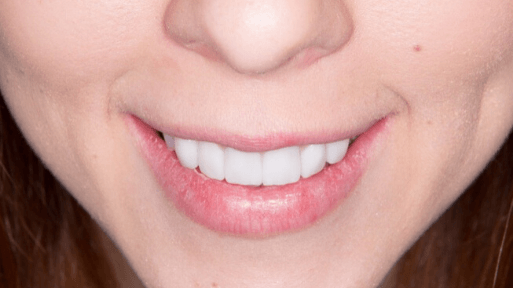The Impact of Tobacco on Oral Health
 In a world where health is increasingly becoming a top priority, it's crucial to understand the effects of our lifestyle choices on our well-being. One of the most concerning habits is tobacco use. The impact of tobacco on oral health is profound and multifaceted, affecting not just the teeth and gums but the entire oral cavity.
In a world where health is increasingly becoming a top priority, it's crucial to understand the effects of our lifestyle choices on our well-being. One of the most concerning habits is tobacco use. The impact of tobacco on oral health is profound and multifaceted, affecting not just the teeth and gums but the entire oral cavity.
1. Staining and Discoloration of Teeth
One of the most noticeable effects of tobacco use is the staining and discoloration of teeth. Tobacco contains nicotine and tar, which are notorious for yellowing the teeth. This discoloration can range from a slight yellow tinge to a brownish hue in heavy smokers, and often, regular brushing isn't enough to reverse these effects.
2. Increased Risk of Gum Disease
Tobacco use significantly increases the risk of developing gum disease, a leading cause of tooth loss in adults. Smoking and chewing tobacco affect the attachment of bone and soft tissue to your teeth. It also interferes with the normal function of gum tissue cells, making the mouth more vulnerable to infections, including periodontal disease.
Oral Health Tips for Aging Adults
 Aging gracefully isn't just about staying physically active and mentally sharp—it's also about maintaining a healthy smile. As we age, our dental needs become more specific, and it's essential to adapt our oral care routines to meet these changes. Here are some vital oral health tips for aging adults to keep your teeth and gums in top condition.
Aging gracefully isn't just about staying physically active and mentally sharp—it's also about maintaining a healthy smile. As we age, our dental needs become more specific, and it's essential to adapt our oral care routines to meet these changes. Here are some vital oral health tips for aging adults to keep your teeth and gums in top condition.
1. Prioritize Hydration for Saliva Production
Dry mouth is a common issue among older adults, often as a side effect of various medications. Saliva is critical for washing away food particles and neutralizing acids produced by bacteria. To combat dry mouth, increase your water intake, chew sugar-free gum to stimulate saliva flow, and consider using saliva substitutes.
2. Daily Oral Hygiene Is Non-Negotiable
Brushing twice a day with fluoride toothpaste and flossing daily becomes even more critical as you age. If you have arthritis or other conditions that make holding a toothbrush difficult, consider using an electric toothbrush or a brush with a larger handle.
What's the Point of Wisdom Teeth?
 Wisdom teeth, also known as third molars, have been a subject of curiosity and sometimes annoyance for many dental patients. These late bloomers typically make their appearance in the late teenage years or early twenties – a time traditionally associated with gaining wisdom, hence their name. But what is the purpose of these mysterious molars, and why do they often cause issues that require removal?
Wisdom teeth, also known as third molars, have been a subject of curiosity and sometimes annoyance for many dental patients. These late bloomers typically make their appearance in the late teenage years or early twenties – a time traditionally associated with gaining wisdom, hence their name. But what is the purpose of these mysterious molars, and why do they often cause issues that require removal?
The Evolutionary Tale
To understand the point of wisdom teeth, we need to take a trip back in time. Our distant ancestors had a rough diet that consisted of raw plants and meat, which required more chewing power. This means they needed more molars for grinding up tough food. As humans evolved, our diets changed, we discovered cooking, and our jaws became smaller as a result of these dietary changes. However, the genetic instructions for those extra teeth remained.
Handling Dental Emergencies: Quick Actions Can Save Your Smile
 Dental emergencies can strike at any moment, and knowing how to respond can mean the difference between saving or losing a tooth. Whether it's a knocked-out tooth, a cracked tooth, or a sudden, unbearable toothache, immediate and appropriate action is crucial. Below are guidelines on how to handle common dental emergencies until you can get professional help.
Dental emergencies can strike at any moment, and knowing how to respond can mean the difference between saving or losing a tooth. Whether it's a knocked-out tooth, a cracked tooth, or a sudden, unbearable toothache, immediate and appropriate action is crucial. Below are guidelines on how to handle common dental emergencies until you can get professional help.
A Knocked-Out Tooth
If you've had a tooth completely knocked out, time is of the essence. Recover the tooth by the crown (the part that is visible when in place in the mouth), avoiding touching the root. Rinse the tooth gently with water if it's dirty, but do not scrub or remove any attached tissue fragments. If possible, try to reinsert it in the socket. If that's not feasible, place the tooth in a cup of milk or a saltwater solution. The goal is to keep the tooth moist at all times. Contact your dentist immediately, as getting to a dentist within 30 minutes can make the difference in saving the tooth.
Brushing Techniques for Optimal Dental Health
 Brushing your teeth seems straightforward, but doing it correctly is key to maintaining optimal dental health. Effective brushing not only cleans your teeth and gums but also helps prevent a multitude of dental problems. Let’s brush up on the best techniques to keep your smile healthy and sparkling.
Brushing your teeth seems straightforward, but doing it correctly is key to maintaining optimal dental health. Effective brushing not only cleans your teeth and gums but also helps prevent a multitude of dental problems. Let’s brush up on the best techniques to keep your smile healthy and sparkling.
- Select the Right Tools: Choose a soft-bristled toothbrush that fits comfortably in your mouth and reaches all areas easily. For toothpaste, opt for one that contains fluoride and carries the American Dental Association (ADA) seal of approval. Consider an electric toothbrush if you want a more thorough clean with less effort.
- Timing is Everything: The ADA recommends brushing for two minutes, twice a day. Timing is critical; too short and you won’t clean effectively, too long and you might damage your gums or enamel.
7 Tips for Children's Oral Care: Laying the Foundations for a Lifetime of Healthy Smiles
 As parents or guardians, you play a vital role in helping your children develop good dental habits early on. These habits not only contribute to their general health but also set the stage for a lifetime of healthy smiles. Here are seven essential tips to help your children maintain excellent oral hygiene from the get-go.
As parents or guardians, you play a vital role in helping your children develop good dental habits early on. These habits not only contribute to their general health but also set the stage for a lifetime of healthy smiles. Here are seven essential tips to help your children maintain excellent oral hygiene from the get-go.
Start Oral Care Early
The journey to healthy teeth begins before the first tooth even appears. Start by wiping your baby's gums with a soft, clean cloth after feedings and before bedtime, which helps remove bacteria and sugars that can cause cavities. Once the first tooth emerges, brush gently with a soft, child-sized toothbrush and a smear of fluoride toothpaste no bigger than a grain of rice.
Supervise Brushing
As children grow, they can start brushing their teeth with a pea-sized amount of toothpaste, but they will need supervision until they develop the motor skills to do it effectively—usually around the age of six. Make sure they brush for two minutes and reach all areas of their mouth. Turn this into a fun activity by singing songs, setting a timer, or using a toothbrushing app.
The Importance of Oral Hygiene During Pregnancy
 Pregnancy is a beautiful journey filled with anticipation, excitement, and, of course, meticulous attention to health. While most expectant mothers are clued into the necessities of proper nutrition and prenatal care, there’s another aspect of health that requires equal vigilance during this crucial period: oral hygiene.
Pregnancy is a beautiful journey filled with anticipation, excitement, and, of course, meticulous attention to health. While most expectant mothers are clued into the necessities of proper nutrition and prenatal care, there’s another aspect of health that requires equal vigilance during this crucial period: oral hygiene.
Why is Oral Hygiene Especially Important During Pregnancy?
During pregnancy, the body undergoes a whirlwind of hormonal changes. These hormonal fluctuations can influence oral health, making pregnant individuals more susceptible to certain dental issues. Here's why prioritizing oral hygiene is paramount during this phase.
1. Pregnancy Gingivitis:
Many pregnant women experience swollen, bleeding gums due to the inflammation caused by increased levels of hormones, particularly progesterone. This condition, known as pregnancy gingivitis, can start as early as the first trimester. Regular dental check-ups and thorough oral hygiene practices can help mitigate its effects.
How to Manage Dental Anxiety
 Dental anxiety is a prevalent concern, with many individuals avoiding regular check-ups or treatments due to fear or apprehension. This anxiety can stem from a variety of sources: past traumatic experiences, fear of pain, or even the sound of dental instruments. Whatever the cause, neglecting dental care due to anxiety can have serious repercussions on one's oral and overall health. In this article, we'll explore strategies to manage and overcome dental anxiety, ensuring everyone can receive the dental care they need without distress.
Dental anxiety is a prevalent concern, with many individuals avoiding regular check-ups or treatments due to fear or apprehension. This anxiety can stem from a variety of sources: past traumatic experiences, fear of pain, or even the sound of dental instruments. Whatever the cause, neglecting dental care due to anxiety can have serious repercussions on one's oral and overall health. In this article, we'll explore strategies to manage and overcome dental anxiety, ensuring everyone can receive the dental care they need without distress.
1. Open Communication with Your Dentist:
The first step in alleviating dental anxiety is to have an open conversation with your dentist. Let them know about your fears or concerns. A compassionate dentist will ensure that they explain procedures in advance, offer breaks when needed, and work at a pace comfortable for you.
2. Distraction Techniques:
Many dental offices now offer distractions like television, music, or even virtual reality headsets. Watching a show or listening to calming music can divert your attention and help reduce anxiety. If your dentist doesn't offer these, consider bringing headphones and playing your favorite relaxing tunes.
Debunking Common Dental Myths
 Dentistry, like many medical fields, is not immune to myths and misconceptions. Some of these myths have been passed down from generation to generation, while others are new-age fables spun by the internet. Let’s set the record straight by debunking some of the most common dental myths.
Dentistry, like many medical fields, is not immune to myths and misconceptions. Some of these myths have been passed down from generation to generation, while others are new-age fables spun by the internet. Let’s set the record straight by debunking some of the most common dental myths.
1. Myth: Sugar is the only culprit behind cavities.
Fact: While sugar does play a significant role in tooth decay, it's not the sugar itself that causes cavities. When sugar is left on your teeth, bacteria in the mouth break it down, producing acids. These acids weaken the enamel, leading to cavities. However, other carbohydrates, like those in bread or rice, can have a similar effect.
2. Myth: Whiter teeth are healthier.
Fact: While everyone loves a bright, white smile, the color of your teeth doesn’t necessarily indicate their health. Teeth can be naturally off-white or slightly yellow but still be perfectly healthy. Some dental treatments or medications can also discolor teeth. It's essential to focus on oral hygiene rather than just the shade of your teeth.
Choosing the Right Toothbrush
 The foundation of a dazzling smile and optimal oral health often starts with the humble toothbrush. Given its pivotal role in maintaining your dental hygiene, selecting the right toothbrush can make all the difference. But with an array of choices available, how do you ensure you're making the best pick? This guide is here to demystify the process.
The foundation of a dazzling smile and optimal oral health often starts with the humble toothbrush. Given its pivotal role in maintaining your dental hygiene, selecting the right toothbrush can make all the difference. But with an array of choices available, how do you ensure you're making the best pick? This guide is here to demystify the process.
1. Manual vs. Electric:
Manual toothbrushes have been a staple for centuries. They're versatile, require no batteries or charging, and come in a wide range of styles and bristle designs. Proper technique is essential to get the best clean.
Electric toothbrushes, on the other hand, do the brushing motion for you. They are especially beneficial for those with limited dexterity or conditions like arthritis. Additionally, some studies suggest electric toothbrushes can be more effective in plaque removal, thanks to consistent motion and pressure.
2. Bristle Variety:
Bristles come in three main varieties: soft, medium, and hard. For most individuals, soft bristles are recommended. They're gentle on the gums while effectively removing plaque. Medium and hard bristles can be abrasive on the enamel and gums, potentially causing harm if used with too much force. However, always consult with your dentist about what might be best for your specific oral condition.
The Role of Saliva in Oral Health
 Often overlooked, saliva plays a pivotal role in maintaining oral health. It is a clear liquid made by several glands in your mouth area. Saliva is vital for a healthy mouth and is instrumental in the processes of eating, digestion, and maintaining oral hygiene. Understanding the role of saliva is crucial for maintaining optimal oral health and preventing a multitude of dental issues.
Often overlooked, saliva plays a pivotal role in maintaining oral health. It is a clear liquid made by several glands in your mouth area. Saliva is vital for a healthy mouth and is instrumental in the processes of eating, digestion, and maintaining oral hygiene. Understanding the role of saliva is crucial for maintaining optimal oral health and preventing a multitude of dental issues.
1. Natural Mouth Cleanser:
Saliva acts as a natural cleanser. It washes away food particles, debris, and bacteria that can contribute to tooth decay and gum disease. The flushing effect of saliva helps in maintaining a clean oral environment, preventing the accumulation of harmful substances that can lead to oral infections.
2. Neutralizes Acids:
Our mouth is continually exposed to acids from foods, beverages, and bacteria. Saliva contains bicarbonate, which helps in neutralizing these harmful acids, preventing tooth erosion, cavities, and other related problems. The neutralization of acids is critical in maintaining a balanced oral pH, promoting a healthier oral environment.

